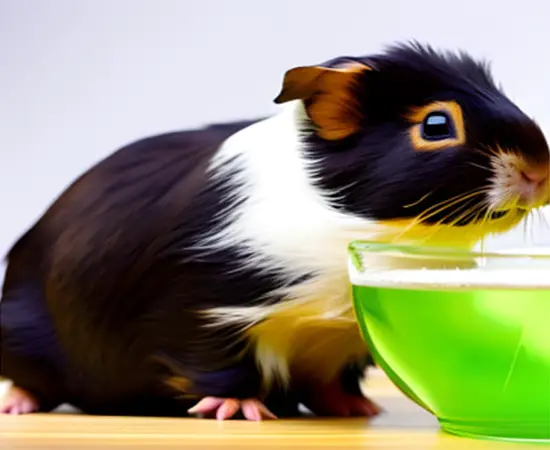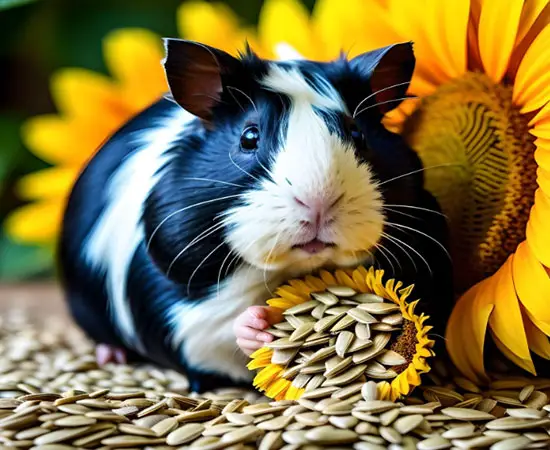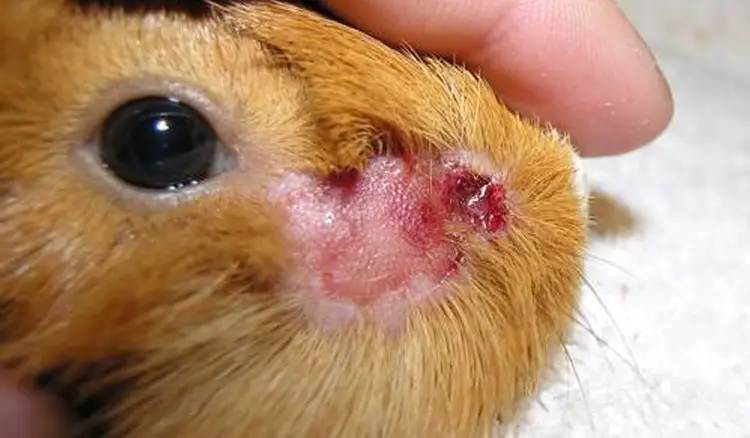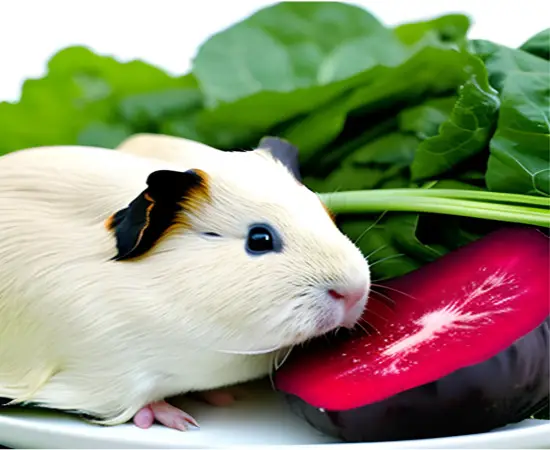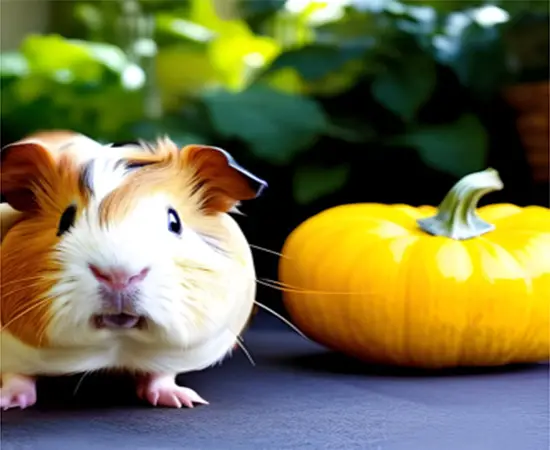Yes, Rabbits can eat alfalfa sprouts moderately. Learn about nutrition, risks, and guidelines for feeding these to your pets.
When it comes to the dietary preferences of our furry companions, rabbits hold a special place. As responsible pet owners, we’re always on the lookout for safe and nutritious treats to enhance our rabbits’ diet. Among the plethora of options, one intriguing question arises: Can rabbits eat alfalfa sprouts? These tiny, vibrant shoots have gained popularity in human diets for their health benefits. But are they equally suitable for our hoppy friends? In this comprehensive guide, we’ll delve into the world of alfalfa sprouts and their compatibility with rabbits’ nutritional needs. Get ready to uncover the facts, benefits, risks, and guidelines surrounding the inclusion of alfalfa sprouts in your rabbit’s menu.
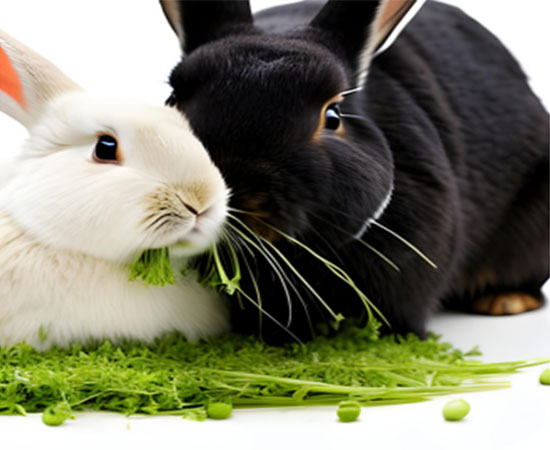
What is Alfalfa Sprouts and Their Nutritional Value
Alfalfa sprouts, commonly used as a garnish or added to salads, are young shoots derived from alfalfa seeds. These sprouts are not only crunchy and flavorful but also pack a nutritional punch. Alfalfa sprouts are known for their low-calorie content and high concentration of vitamins and minerals. They are particularly rich in vitamins A, C, and K, as well as essential minerals like calcium, iron, and potassium. These nutrients contribute to overall health and wellness, making alfalfa sprouts an enticing option for enhancing your rabbit’s diet.
Benefits of Feeding Alfalfa Sprouts to Rabbits
Here are some benefits of feeding alfalfa sprouts to rabbits:
High Fiber Content for Digestive Health
Rabbits are herbivores with complex digestive systems that require a diet high in fiber. Alfalfa sprouts can contribute to this dietary requirement, aiding in proper digestion and preventing gastrointestinal issues like hairballs.
Rich Source of Essential Vitamins
Vitamins play a crucial role in a rabbit’s well-being, supporting various bodily functions. The vitamins present in alfalfa sprouts, such as vitamin A for vision and skin health, vitamin C for immune support, and vitamin K for blood clotting, can help maintain your rabbit’s overall health.
Supporting Bone Health with Calcium
Calcium is essential for strong bones and teeth in rabbits. Alfalfa sprouts contain a good amount of calcium, which can contribute to maintaining your rabbit’s skeletal health, especially in young rabbits or pregnant/nursing females.
Guidelines for Feeding Alfalfa Sprouts to Your Rabbits
Introducing alfalfa sprouts to your rabbit’s diet requires a gradual approach to ensure their digestive system adapts comfortably. Start by offering a small portion and monitor your rabbit’s response. If your rabbit shows enthusiasm and tolerates the sprouts well, you can gradually increase the serving size. However, remember that moderation is key; too many alfalfa sprouts can upset your rabbit’s nutritional balance.
Potential Risks and Considerations
Oxalates and Calcium Imbalance
While calcium is important, an excessive amount in a rabbit’s diet can lead to health issues such as urinary stones. Alfalfa sprouts contain oxalates, compounds that can hinder calcium absorption. This interaction emphasizes the importance of a balanced diet, where alfalfa sprouts are just one component.
Allergic Reactions or Sensitivities
As with any new food, rabbits might have allergies or sensitivities to alfalfa sprouts. Monitor your rabbit for signs of adverse reactions such as gastrointestinal upset, itching, or changes in behavior.
Impact on Weight and Obesity
While alfalfa sprouts are nutritious, they should not replace a rabbit’s staple diet of hay and pellets. Overfeeding sprouts, which are relatively high in calories compared to leafy greens, can lead to weight gain and obesity.
Balanced Diet for Rabbits: Variety is Key
Alfalfa sprouts can be a delightful addition to your rabbit’s diet, but they should be part of a well-rounded feeding plan. A rabbit’s diet should primarily consist of high-quality hay and a controlled amount of pellets to meet their nutritional needs. Fresh vegetables like leafy greens should also be included to provide additional nutrients and variety.
DIY Sprouting for Your Rabbits: How to Ensure Freshness and Safety
To ensure the freshest and safest alfalfa sprouts for your rabbits, consider sprouting them at home. Start by purchasing organic alfalfa seeds from a reputable source. Follow these steps to sprout alfalfa seeds:
- Rinse: Thoroughly rinse the seeds to remove any debris.
- Soak: Place the seeds in a clean container and cover them with water. Allow them to soak overnight.
- Rinse and Drain: Rinse the seeds and drain the water. Repeat this process twice a day until sprouts begin to grow.
- Sprout: Transfer the seeds to a sprouting tray or a clean, shallow container. Spread them out to allow air circulation.
- Mist and Wait: Mist the sprouts with water once or twice a day to keep them moist. Within a few days, you’ll have fresh alfalfa sprouts ready for your rabbits to enjoy.
Remember to maintain proper hygiene throughout the sprouting process to prevent contamination.
Signs of Allergies or Digestive Issues in Rabbits
While alfalfa sprouts can be a nutritious addition to your rabbit’s diet, it’s essential to be vigilant for any signs of allergies or digestive discomfort. If your rabbit experiences symptoms like diarrhea, bloating, lethargy, or changes in appetite after consuming alfalfa sprouts, discontinue feeding them immediately and consult your veterinarian.
Frequently Asked Questions
Can Baby Rabbits (Kits) Eat Alfalfa Sprouts?
While alfalfa is commonly recommended for young rabbits due to its higher calcium content, alfalfa sprouts are best introduced when kits transition to solid foods. Consult your veterinarian for guidance on the appropriate time to incorporate sprouts into their diet.
Can Rabbits with Certain Health Conditions Consume Alfalfa Sprouts?
Rabbits with specific health conditions, such as a history of urinary issues, may need a controlled calcium intake. Always consult your vet before making dietary changes for rabbits with medical concerns.
Are There Alternatives to Alfalfa Sprouts for Rabbits?
Yes, there are plenty of safe and nutritious alternatives to alfalfa sprouts. Leafy greens like romaine lettuce, kale, and cilantro are excellent choices that offer a variety of vitamins and minerals.
Conclusion
In conclusion, alfalfa sprouts can indeed be a healthy and enjoyable treat for your rabbits when incorporated mindfully into their diet. These sprouts offer a range of vitamins and minerals that contribute to your rabbit’s overall well-being. However, it’s crucial to exercise caution and moderation, as an imbalanced diet can lead to health issues. Always prioritize a diverse and balanced diet for your furry friends, and consult a veterinarian before introducing new foods or making significant dietary changes. With the right approach, you can provide your rabbits with a wholesome diet that keeps them happy and thriving.

